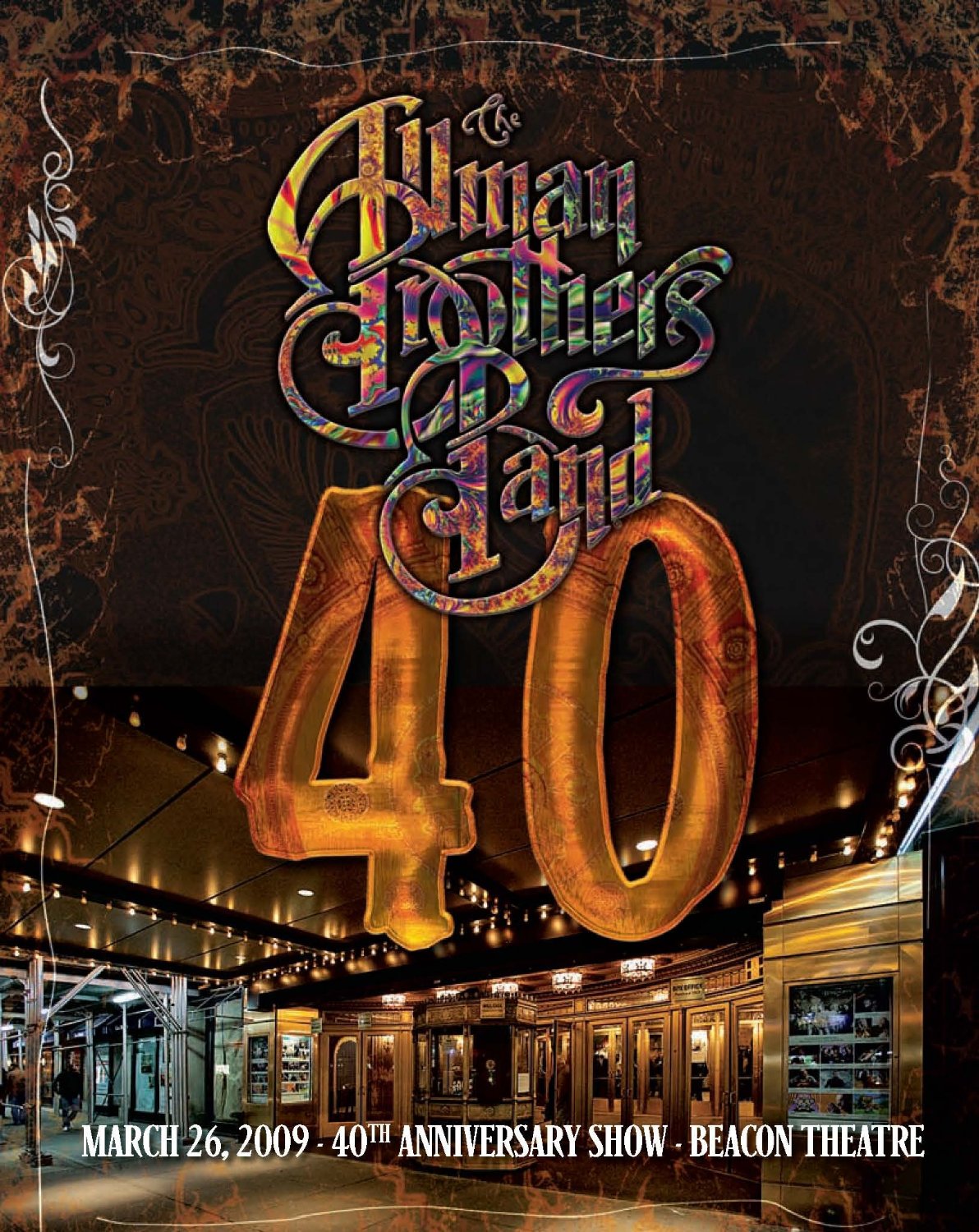
As it would be impossible to say what would have become of The Allman Brothers Band if Duane Allman had not passed away tragically in 1971 at age 24, it’s equally speculative that a 40th anniversary of its inception had he lived would’ve been marked by a performance of the group’s first two albums in their entireties. Duane Allman was a visionary, and the course of the Rock and Roll Hall of Fame band would most certainly have unfolded much differently under his continued guidance. The venerable ensemble may have not been resurrected again and again after several spilt-ups, may not have made forgettable records in the early 1980s, or permanently exiled guitarist Dickey Betts. In turn, it would not have existed with the lineup it does presently, one that takes the stage and proceeds to deliver a majestic, memorable, and musically explosive evening on 40, the DVD capturing The Allman Brothers Band’s March 26, 2009 concert at New York City’s Beacon Theatre. Ostensibly the show is in recognition of four decades, but the real recipient of the tribute is Duane Allman and those two magical years he spent leading the group to glorious heights of blues-based improvisation.
Covering the band’s eponymous debut and its sophomore follow-up Idlewild South, the septet steps out of and revels in character simultaneously throughout the two-set appearance. Carrying a reputation for changing up the setlists nightly, and, particularly during the annual Beacon Theatre stints, welcoming special guests, on this night the songs of those first two albums were kept in their recorded running order, with just the Brothers performing them. This is not to suggest the mind-expanding philosophy of performance wasn’t maintained or that the versions didn’t strive to set new peak levels. Those soaring flights of improvisation most certainly still soar, provided mostly by guitarists Warren Haynes and Derek Trucks, who continue to erase the line between past and progression, evoking the spirit of the Allman/Betts Fillmore East days while carrying the repertoire into the 21st century. Extended work-outs like “Whipping Post” and “In Memory of Elizabeth Reed” summon stretches of yet-to-explored sonic space, but it’s the ratchet-tight arrangements and telepathic connectivity of the front line players and their rhythm section counterparts throughout the rumbling “Black Hearted Woman,” (and its slight “The Other One” reference), and Betts ‘60s paean “Revival” that also illustrate the unparalleled symbiosis of this unit.
However a band arrives at such a milestone as the Allman Brothers Band did on this occasion is likely to be a story of sheer survival. Unfortunately, Duane Allman did not survive to see it. Yet throughout 40 it’s overwhelmingly obvious how respected he remains, how persistent his influence and innovations are on his current interpreters Haynes and Trucks, and how the Allman Brothers Band has endured in those subsequent 38 years in the absence of the only other Allman brother. 40 validates convincingly that the group has not lost sight of Duane’s original vision, making this more a solemn thank-you note than historical retrospective.



No Comments comments associated with this post